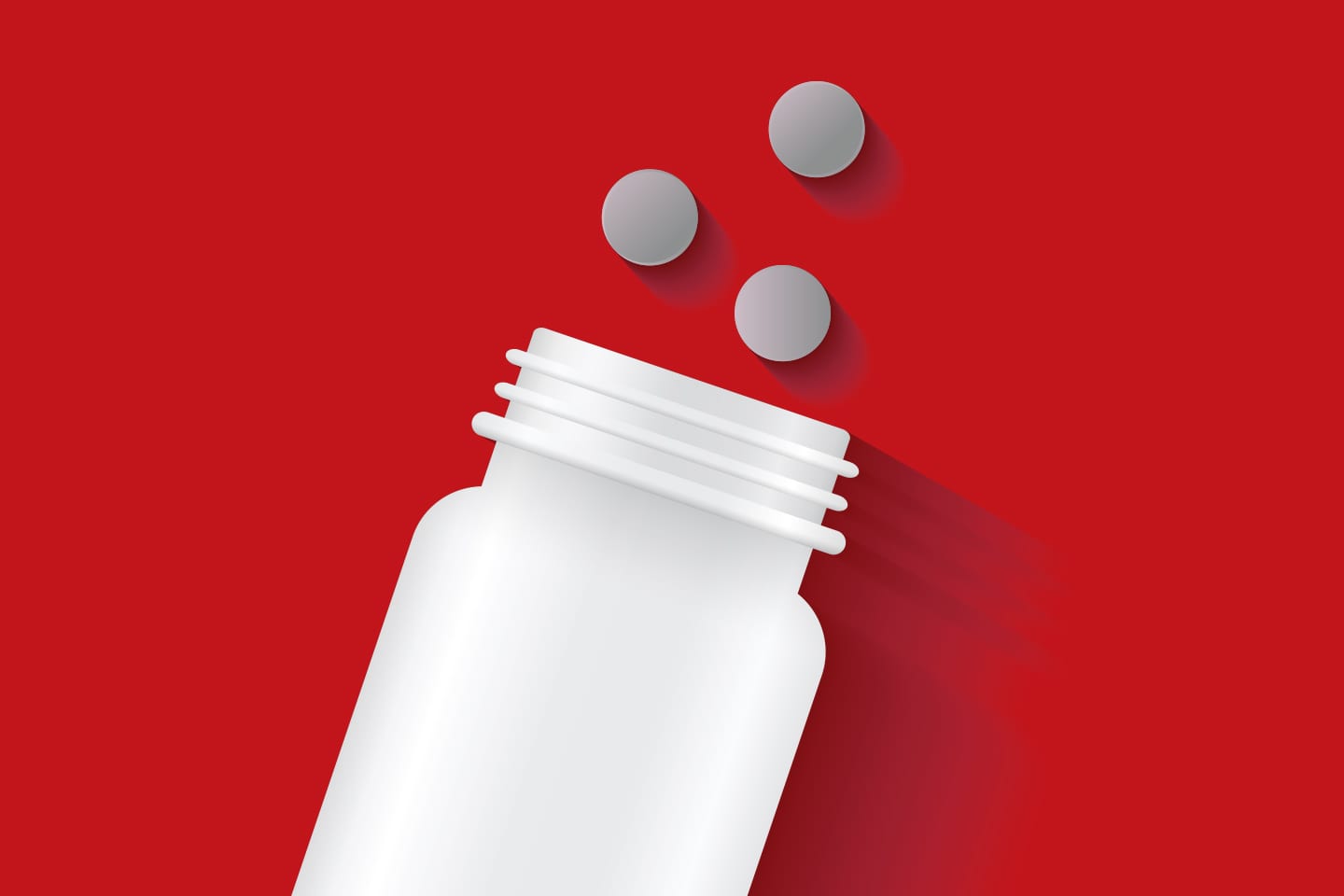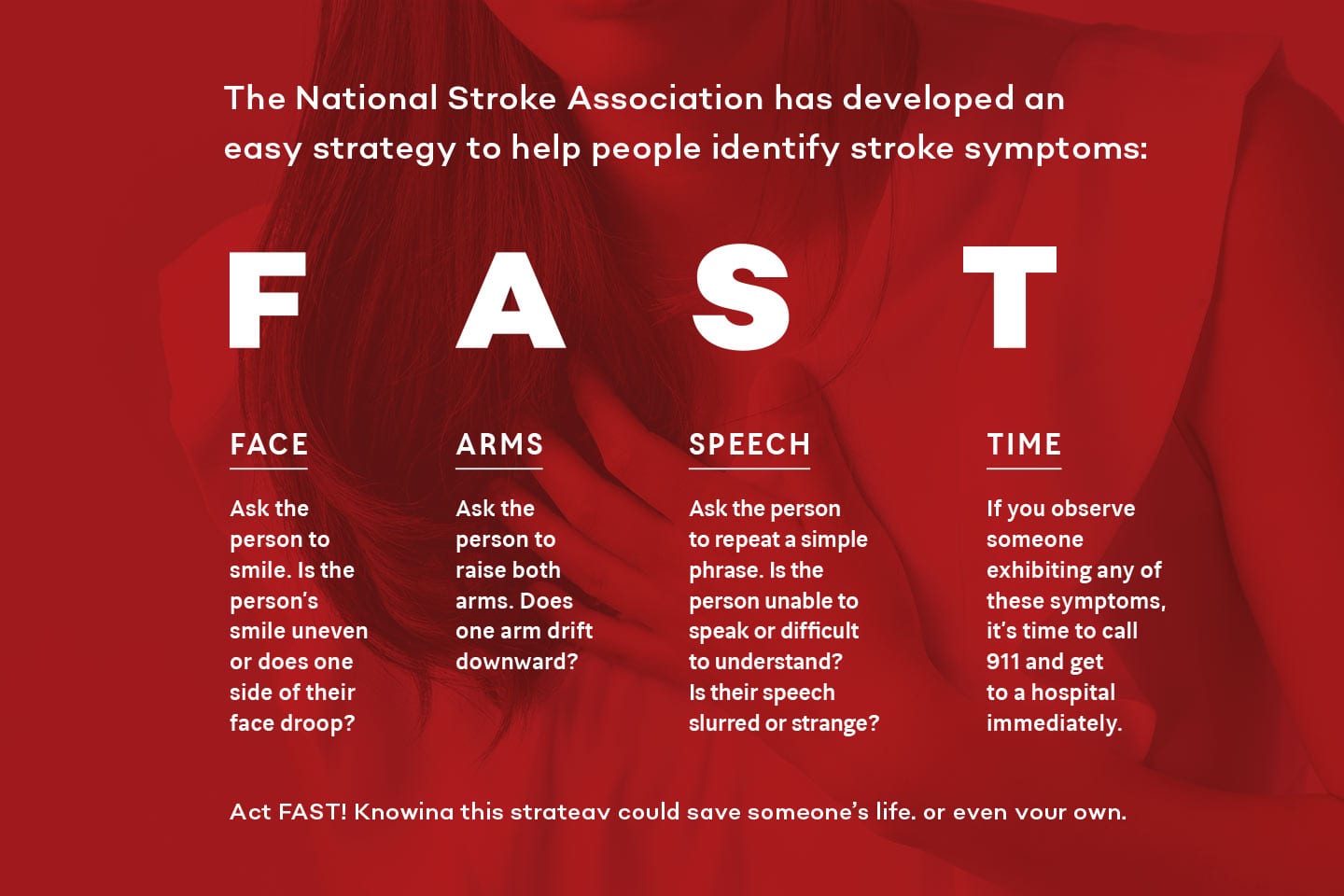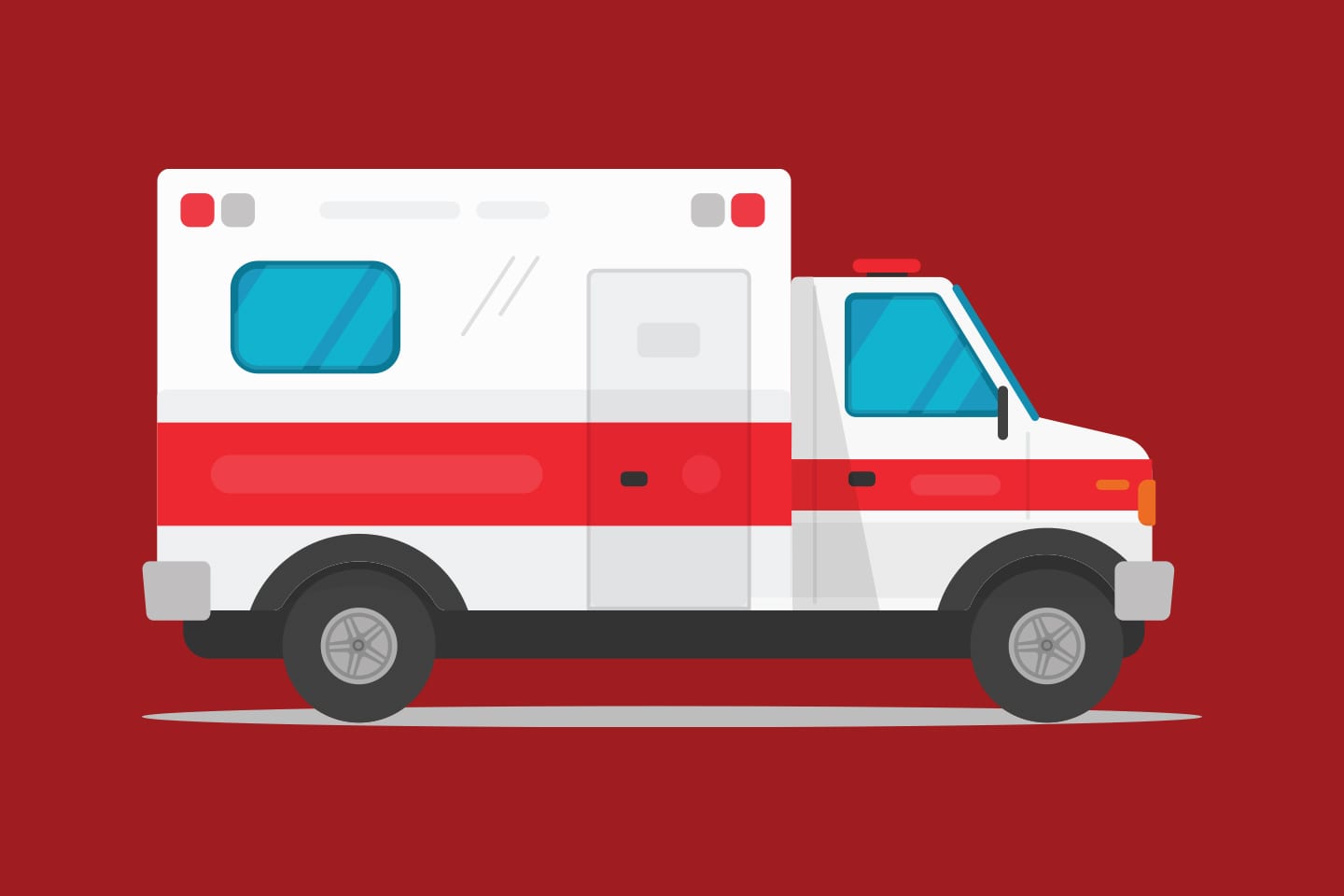We Ask the Experts: What Women Should Know About Strokes
As women, we are often busy, fatigued, overworked, and flat out exhausted. You might think it’s just a headache that hit you suddenly at work, or that dizzy spell is just your body declaring exhaustion. In reality, it may be a sign of stroke.
By Amanda Parks


Neurologist,
CHI Memorial
“Not only has stroke become the leading cause for serious long-term disability, it’s also the fifth leading cause of death in women,” says Dr. Roza Adamczyk, a neurologist with CHI Memorial. “We see close to 800,000 people in the United States suffer from a stroke each year, and more than half of those patients are women.” In fact, 1 in 5 women in their lifetime will experience a stroke. But as alarming as those statistics are, some strokes are preventable. Understanding what puts you at risk can reduce your likelihood of experiencing one.
What Is a Stroke?
A stroke is a serious medical emergency. “Sometimes called a ‘brain attack,’ a stroke is the sudden death of brain cells due to loss of blood supply,” explains Dr. Juan Gonzalez, a neurologist with Hamilton Physician Group – Neurology.
A stroke can happen when a blood vessel that carries oxygen to the brain is obstructed by a clot or plaque. This is called an ischemic stroke, which is the most common type and accounts for about 87% of all strokes. Other strokes occur when weakened blood vessels rupture and allow blood to bleed into the brain. These are called hemorrhagic strokes. Regardless of the type, it is important to seek emergency medical attention as soon as possible. A delay in treatment can increase your risk of permanent brain damage or death.
Unlike ischemic or hemorrhagic strokes, a transient ischemic attack (TIA) occurs when your brain receives less blood than normal for a few minutes, and it may or may not produce the usual stroke symptoms. If present, symptoms normally dissipate within an hour. “Seek emergency care even if your symptoms seem to clear up,” warns Dr. David Wiles, neurosurgeon with Southeastern Spine & Neurosurgery. “Having a TIA puts you at greater risk of having a full-blown stroke, causing permanent damage later. If you’ve had a TIA, it means there’s likely a partial blocked or narrowed artery leading to your brain or a clot source in the heart.”
One in 3 people who experience a TIA, or “mini stroke,” will have a full stroke, and half of those will typically occur within one year. Mini strokes can provide an opportunity to evaluate your risk factors and take measures to prevent a stroke in the future.

Is aspirin an effective home remedy for stroke?
“Although it may be true that aspirin can be helpful in breaking up a clot during a heart attack, this is not always safe for a stroke,” explains Dr. Wiles. “Aspirin could actually be harmful if you are having a stroke caused by bleeding into the brain. However, once stroke patients have been evaluated and started on aspirin by their doctors, aspirin is an excellent drug to stop another stroke from happening.”
What Puts Women at Risk


Neurosurgeon, Southeastern Spine
& Neurosurgery
Women are more likely to die from a stroke, but why? Certain risk factors specifically target females:
HIGH BLOOD PRESSURE: High blood pressure, also known as hypertension, is the main risk factor for stroke. “High blood pressure damages the lining of the small and large arteries, which allows plaque to form,” explains Dr. Gonzalez. “That plaque can cause a heart attack, heart failure, and abnormal heart rhythms that send blood clots to the brain.”
While men can also suffer from hypertension, ethnicity (African American women are at the highest risk of developing high blood pressure), gestational diabetes, birth control pills, and hormone replacement therapy all increase a woman’s likelihood of developing it.
AGE: Your risk of stroke increases with age, and women are more likely to live longer than men. As women age, the risk of stroke increases each year.
PREGNANCY: “Pregnancy and delivery are major stroke risk factors for women,” says Dr. Adamczyk. “Pregnancy can affect a woman’s blood pressure, which can lead to preeclampsia or eclampsia, and delivery by itself is a very traumatic event, which can also raise blood pressure.”
MENTAL HEALTH ISSUES: Women are twice as likely to experience anxiety as men. Studies also show women report higher stress levels. Anxiety is linked to a greater risk of stroke. In fact, even modest increases in anxiety can result in an increased stroke risk.


Signs You Might Be Having a Stroke


Neurologist, Hamilton Physician Group – Neurology
Both men and women can experience a similar set of stroke symptoms that come on suddenly, including difficulty speaking; confusion; dizziness; difficulty walking or loss of coordination; vision problems in one or both eyes; and numbness or weakness of face or limbs on one side of the body (face drooping or arm weakness).
However, women can experience atypical symptoms without the presence of the more common and severe stroke symptoms. “Women very often see symptoms and signs of stroke that are more vague and therefore can be easy to ignore,” explains Dr. Adamczyk. “They may experience nausea, headache or migraine, fatigue, or generalized weakness. In other words, the symptoms are not very specific.”
Other vague symptoms that women experience include disorientation, hiccups, and agitation. Since these symptoms are not often associated with an immediate medical emergency, it’s easy for women to brush them away while balancing busy lives. Unfortunately, this delays time-sensitive treatment.
When it comes to treating a stroke, every minute matters. “We say, ‘Time is brain’ because each minute your brain is deprived of oxygen, millions of brain cells are dying. This increases your risk of long-term disability, permanent brain damage, or even death,” says Dr. Adamczyk. That’s why it’s crucial that you are aware of women’s unique symptoms and act fast.
Call 911 immediately if you experience any of the symptoms, and make note of what time symptoms began; this is crucial information for your medical providers. The American Stroke Association says that patients who receive a clot-busting drug within three hours of the first symptom have a higher chance of recovering from a stroke.


Should I Call an Ambulance?
Treatment for stroke is time sensitive, and the best outcomes are associated with the earliest intervention. Therefore, Dr. Gonzalez recommends calling an ambulance if a loved one is experiencing a stroke. “An ambulance ride is heavily encouraged instead of a personal vehicle, since EMS will initiate treatment and activate a code stroke, gathering the hospital team to receive the patient upon arrival.”
Preventing Stroke
There are steps you can take to decrease your risk of stroke at any age. Because high blood pressure is the main risk factor for stroke, start with working to lessen your chances of developing hypertension. This includes monitoring your blood pressure, exercising regularly, eating a balanced diet, managing stress, and maintaining a healthy weight.
Due to the added risk factors women face, you should also be conscious of your blood pressure during and after pregnancy and ask your doctor to test you for high blood pressure before starting hormonal birth control pills.
Talk with your doctor about your risks for experiencing a stroke, such as your family history, age, or other health conditions. “Knowing your stroke risk factors, following your doctor’s recommendations, and adopting a healthy lifestyle are the best steps you can take to prevent a stroke,” says Dr. Wiles.
As women, we often struggle to find balance while juggling our busy lives. We even hear, “I don’t have time to be sick.” Though it may be easiest to disregard seemingly minor symptoms such as a sudden headache or fatigue, it’s important to stop and listen to your body. When writing out your to-do list, be sure and move “take care of myself” to the top. HS

